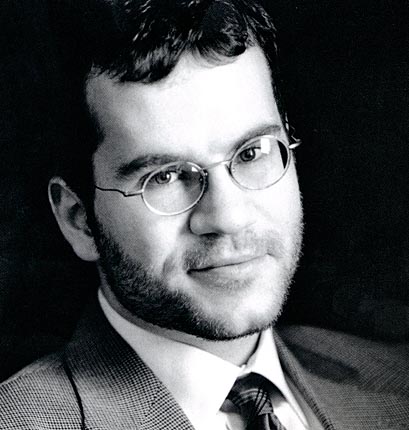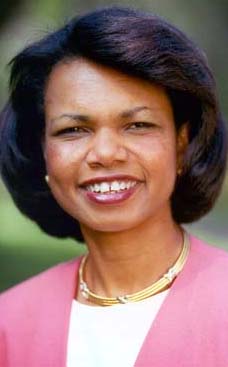2006.03.15: March 15, 2006: Headlines: Figures: COS - Uzbekistan: Writing - Uzbekistan: The Crimson: Tom Bissell is proving to be the premier contemporary author of Americans adrift around the world
Peace Corps Online:
Directory:
Uzbekistan:
Special Report: Uzbekistan RPCV and Author Tom Bissell:
Tom Bissell: Newest Stories:
2006.03.15: March 15, 2006: Headlines: Figures: COS - Uzbekistan: Writing - Uzbekistan: The Crimson: Tom Bissell is proving to be the premier contemporary author of Americans adrift around the world
Tom Bissell is proving to be the premier contemporary author of Americans adrift around the world

When one thinks of short stories about Americans adrift in a foreign land, expatriate authors like Ernest Hemmingway and Paul Bowles come to mind. With “God Lives in St. Petersburg,” author Tom Bissell, who also spoke with The Crimson, seems like a contemporary counterpart to this esteemed company, with his creation of a confection of intricately poignant stories about Americans drifting lost in Central Asia. Author Tom Bissell served as a Peace Corps Volunteer in Uzbekistan.
Tom Bissell is proving to be the premier contemporary author of Americans adrift around the world
Strangers Adrift In a Strange Land
Published On Wednesday, March 15, 2006 8:53 PM
By JESSICA C. COGGINS
Crimson Staff Writer
When one thinks of short stories about Americans adrift in a foreign land, expatriate authors like Ernest Hemmingway and Paul Bowles come to mind.
With “God Lives in St. Petersburg,” author Tom Bissell, who also spoke with The Crimson, seems like a contemporary counterpart to this esteemed company, with his creation of a confection of intricately poignant stories about Americans drifting lost in Central Asia.
This latest work from Bissell is a stirring and moving work that is meticulously fetching. He abstains from the cliché in his expressive writing, which is often side-splittingly funny.
Populating this work of six short stories is a quirky collection of characters that are memorable and touching. He eschews the “dumb American” stereotype in favor of complex lost souls threaded together by their ties to Central Asia.
Bissell has also developed an image of a diverse international landscape that is exquisitely entertaining and engaging.
In “Death Defier” we meet Donk, an overweight war photographer, amidst combat in Afghanistan. When his travel companion takes ill, Donk is forced to chase down a cure in the scorching valleys of humvees and American soldiers.
We understand how “Afghanistan had mailed into Donk’s brain a series of crushingly similar mental postcards: men, men, desert, men, men, men, guns, men, guns, guns, desert, guns, men.”
Situated in the chaos and confusion of Kunduz, the reader becomes captivated by Donk’s bizarre desire to be surrounded by these scenes of death. His tale is a haunting and intricate study of a human’s fear and fascination with death.
“He believed in photography, which he loved, and death, which he hated. He thought about how he had been using one to deny the other,” Bissell writes.
“The Ambassador’s Son” is a first-person narrative about a bratty Russian ambassador’s son, whose penchant for booze and broads is surprisingly moving.
When his mother discovers him in a compromising position with two comely girls, Svetlana and Olga, the son’s only explanation is “two chicks at once, Ma.” Despite the son’s later admission that “every beautiful girl in the Capital was either for sale or willing to negotiate,” he is a strangely compelling character.
Light-hearted, but ultimately emotional, “The Ambassador’s Son” is the funniest story within the collection.
The namesake story “God Lives in St. Petersburg”—about a married Christian missionary questioning his sexuality in the Russian city—is a quiet, almost methodical piece. The protagonist, Timothy Silverstone, is likely the most “lost” of all of Bissell’s characters.
Wandering the streets of St. Petersburg, which Bissell describes with luscious detail, Timothy is a spiritually fragmented man. Despite the companionship of his gay lover Sasha, Timothy is stuck in the aimless pursuit of curing his loneliness, and Bissell paints a movingly somber portrait that is never gloomy or drab. He wonderfully combines his bitingly sardonic (sometimes ironic) sense of humor with profound depictions of loneliness and emptiness.
Modifying his tone from each story to the next, Bissell captures both the abstractness of human emptiness and the realities of Central Asia. The places in which these Americans find themselves immersed are integral to, and often symbolic of, their plight. From the desolate terrain of Afghanistan to the red-light districts of Russia, Bissell nails the intricacy, even complication, of Central Asia, hitherto mostly ignored by the world of literature.
With “God Lives in St. Petersburg” added to his previous works—most notably “Chasing the Sea,” which centered around the Aral—Bissell is proving to be the premier contemporary author of Americans adrift around the world.
—Staff writer Jessica C. Coggins can be reached at jcoggins@fas.harvard.edu.
When this story was posted in March 2006, this was on the front page of PCOL:





Peace Corps Online The Independent News Forum serving Returned Peace Corps Volunteers
 | History of the Peace Corps
PCOL is proud to announce that Phase One of the "History of the Peace Corps" is now available online. This installment includes over 5,000 pages of primary source documents from the archives of the Peace Corps including every issue of "Peace Corps News," "Peace Corps Times," "Peace Corps Volunteer," "Action Update," and every annual report of the Peace Corps to Congress since 1961. "Ask Not" is an ongoing project. Read how you can help. |
 | The Peace Corps Library
The Peace Corps Library is now available online with over 40,000 index entries in 500 categories. Looking for a Returned Volunteer? Check our RPCV Directory. New: Sign up to receive PCOL Magazine, our free Monthly Magazine by email. Like to keep up with Peace Corps news as it happens? Sign up to recieve a daily summary of Peace Corps stories from around the world. |
 | Peace Corps suspends program in Bangladesh
Peace Corps Director Gaddi H. Vasquez announced the suspension of the Peace Corps program in Bangladesh on March 15. The safety and security of volunteers is the number one priority of the Peace Corps. Therefore, all Peace Corps volunteers serving in Bangladesh have safely left the country. More than 280 Peace Corps volunteers have served in Bangladesh since the program opened in November 1998. Latest: What other newspapers say. |
 | Invitee re-assigned after inflammatory remarks
The Peace Corps has pulled the invitation to Derek Volkart to join the Morocco Training Program and offered him a position in the Pacific instead after officials read an article in which he stated that his decision to join the Peace Corps was in "response to our current fascist government." RPCV Lew Nash says that "If Derek Volkart spoke his mind as freely in Morocco about the Moroccan monarchy it could cause major problems for himself and other Peace Corps volunteers." Latest: The Ashland Daily Tidings has issued a request for all Peace Corps communications on the case. |
 | Re-envision Peace Corps
Nicholas J. Slabbert says in his article in the Harvard International Review that an imaginatively reinvented Peace Corps could powerfully promote US interests in a period when perceptions of American motives are increasingly relevant to global realignment. His study envisions a new role for the Peace Corps in five linked areas: (1) reinventing America's international profile via a new use of soft power; (2) moving from a war-defined, non-technological, reactive theory of peace to a theory of peace as a normal, proactive component of technologically advanced democracy; (3) reappraising Peace Corps as a national strategic asset whose value remains largely untapped; (4) Peace Corps as a model for the technological reinvention of government agencies for the 21st century; (5) redefining civil society as information technology society. Read the article and leave your comments. |
 | March 1, 1961: Keeping Kennedy's Promise
On March 1, 1961, President John F. Kennedy issues Executive Order #10924, establishing the Peace Corps as a new agency: "Life in the Peace Corps will not be easy. There will be no salary and allowances will be at a level sufficient only to maintain health and meet basic needs. Men and women will be expected to work and live alongside the nationals of the country in which they are stationed--doing the same work, eating the same food, talking the same language. But if the life will not be easy, it will be rich and satisfying. For every young American who participates in the Peace Corps--who works in a foreign land--will know that he or she is sharing in the great common task of bringing to man that decent way of life which is the foundation of freedom and a condition of peace. " |
 | Paid Vacations in the Third World?
Retired diplomat Peter Rice has written a letter to the Wall Street Journal stating that Peace Corps "is really just a U.S. government program for paid vacations in the Third World." Director Vasquez has responded that "the small stipend volunteers receive during their two years of service is more than returned in the understanding fostered in communities throughout the world and here at home." What do RPCVs think? |
 | RPCV admits to abuse while in Peace Corps
Timothy Ronald Obert has pleaded guilty to sexually abusing a minor in Costa Rica while serving there as a Peace Corps volunteer. "The Peace Corps has a zero tolerance policy for misconduct that violates the law or standards of conduct established by the Peace Corps," said Peace Corps Director Gaddi H. Vasquez. Could inadequate screening have been partly to blame? Mr. Obert's resume, which he had submitted to the Peace Corps in support of his application to become a Peace Corps Volunteer, showed that he had repeatedly sought and obtained positions working with underprivileged children. Read what RPCVs have to say about this case. |
 | Why blurring the lines puts PCVs in danger
When the National Call to Service legislation was amended to include Peace Corps in December of 2002, this country had not yet invaded Iraq and was not in prolonged military engagement in the Middle East, as it is now. Read the story of how one volunteer spent three years in captivity from 1976 to 1980 as the hostage of a insurrection group in Colombia in Joanne Marie Roll's op-ed on why this legislation may put soldier/PCVs in the same kind of danger. Latest: Read the ongoing dialog on the subject. |
 | Friends of the Peace Corps 170,000 strong
170,000 is a very special number for the RPCV community - it's the number of Volunteers who have served in the Peace Corps since 1961. It's also a number that is very special to us because March is the first month since our founding in January, 2001 that our readership has exceeded 170,000. And while we know that not everyone who comes to this site is an RPCV, they are all "Friends of the Peace Corps." Thanks everybody for making PCOL your source of news for the Returned Volunteer community. |
Read the stories and leave your comments.

Some postings on Peace Corps Online are provided to the individual members of this group without permission of the copyright owner for the non-profit purposes of criticism, comment, education, scholarship, and research under the "Fair Use" provisions of U.S. Government copyright laws and they may not be distributed further without permission of the copyright owner. Peace Corps Online does not vouch for the accuracy of the content of the postings, which is the sole responsibility of the copyright holder.
Story Source: The Crimson
This story has been posted in the following forums: : Headlines; Figures; COS - Uzbekistan; Writing - Uzbekistan
PCOL32149
90


















